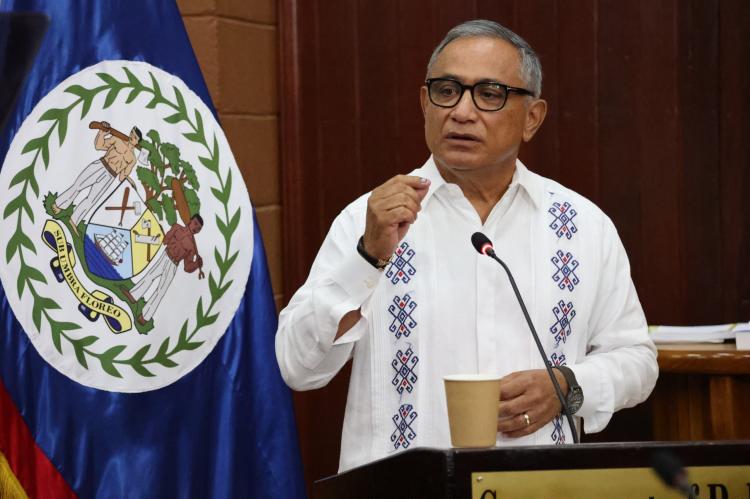"Two Plans, Two Realities: How Plan Mexico Delivered and Plan Belize Disappointed"
By: Omar Silva I Editor/Publisher
National Perspective Belize I Digital 2025
Belize City: Saturday 19th July 2025
NATIONAL PERSPECTIVE BELIZE
OPINION / NATIONAL POLICY Friday, July 19, 2025
In 2007, Mexico entered a strategic bilateral agreement with the United States known as the Mérida Initiative, widely referred to as Plan Mexico. Built on four concrete pillars—security, institutional reform, border modernization, and community resilience—the initiative had its critics, but Mexico showed commitment in converting promise into execution, establishing a real policy footprint in areas such as judicial reform, law enforcement training, anti-money laundering systems, and investment in border infrastructure.
In contrast, Belize’s Plan Belize, launched in 2020 by the Briceño Administration and recently rebranded as Plan Belize 2.0, stands today not as a symbol of delivery—but as a prime exhibit in political pageantry. It promised a social revolution. It delivered recycled slogans, half-baked programs, and an ever-expanding list of excuses.
Let’s put the contrast into context.
Plan Mexico: Measurable Delivery
Mexico, with all its limitations, demonstrated state continuity and institutional discipline.
- Over $3 billion USD in U.S. assistance flowed through multi-year benchmarks.
- The military received helicopters and surveillance aircraft; police underwent vetting and training.
- Mexico restructured its judicial system from written inquisitorial models to open oral trials.
- Border security infrastructure expanded.
- Community outreach programs and drug rehabilitation centers were funded.
- Civil society participation was formalized through oversight mechanisms.
Importantly, even when Mexico changed administrations—from Calderón to Peña Nieto, and later to AMLO—Plan Mexico evolved, but it was never abandoned. The country showed a political will to engage with its population and institutions—even amid critique and controversy.
Plan Belize 1.0: The Launch of a Mirage
Launched with pomp before the 2020 general elections, Plan Belize 1.0 promised:
- 50,000 new jobs
- 10,000 new homes
- Full National Health Insurance (NHI) coverage
- Free education through 6th form
- 4,000 police recruits
- A Border Protection Force
- Campaign finance reform
- Drone-based security
- Job-creating industries and rural revival
What was delivered? A minimum wage increase, scattered police hirings, and a few model houses for photo ops.
The NHI remains limited. Free education to 6th form is still a dream in most districts. The housing shortage remains acute. Political financing is more obscure than ever. And jobs—outside political contracts or crony projects—remain elusive.
Plan Belize 1.0, in essence, was a glossy brochure to win votes—not a roadmap to reform.
Plan Belize 2.0: The Great Repackaging
Ahead of the 2025 general elections, the Briceño government rebranded the same promises under Plan Belize 2.0—claiming renewed focus on:
- High-paying jobs
- Cost-of-living relief
- Infrastructure development
- Safer communities
- Education and health reforms
Yet, Plan Belize 2.0 contains no credible performance review of Plan 1.0. There are no audits. No metrics. No apologies.
The 2025–26 national budget mentions Plan Belize dozens of times but offers no timeline or legal mandate for delivery. Key capital projects like the solar energy plant, though funded, lack clear public procurement transparency. Even when funds are allocated, execution lags, and performance is hidden behind bureaucratic curtains.
The Deep Contradiction
The difference between Mexico and Belize is not about size or resources.
- It is about governance.
- It is about institutional commitment.
- It is about respecting the electorate.
While Mexico had every reason to fumble—high corruption, cartel violence, institutional fragility—it chose to act, to reform, to adjust.
Belize, under Plan Belize, chose to embellish, repackage, and re-sell the same old tricks.
Worse, it insults the intelligence of the people by calling it a "New Vision."
A Deeper Insult to Democracy
What Plan Belize 1.0 and 2.0 have become is a betrayal of trust—a mockery of governance.
If we accept this model, we accept:
- Manifestos without enforcement
- Budgets without delivery
- Institutions without independence
- And a democracy that serves political financiers, not the people
The electorate is not a marketing target. They are citizens. They are the stakeholders of national development. Yet Plan Belize has offered them slogans instead of solutions, and now, as the 2025 election campaign heats up, the government wants us to believe that this time, they really mean it.
Conclusion: One Delivered, One Deceived
Plan Mexico, despite being imperfect, transformed Mexico’s institutions. It made demands, and Mexico responded with measured reforms.
Plan Belize, on the other hand, has thus far produced a portfolio of promises, poor delivery, and pervasive political marketing. The people of Belize deserve more than a 2.0 rerun. They deserve performance, accountability, and truth.
Until Plan Belize is held to legal, financial, and moral scrutiny, it will remain what it currently is:
[A Plan in Name Only. A Campaign Strategy, not a Development Vision.]
- Log in to post comments

